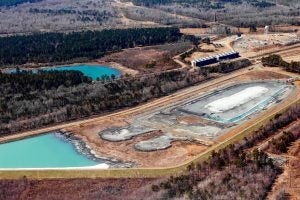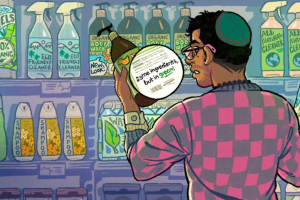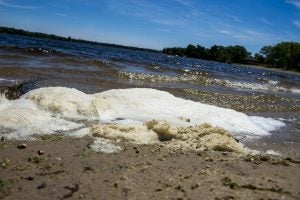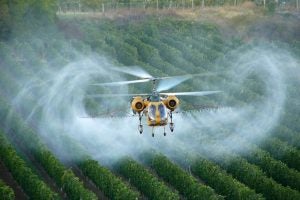 January 20, 2026
by Charlie Kabelac
Air
Chemicals
January 20, 2026
by Charlie Kabelac
Air
Chemicals
Fireworks remain a popular form of celebration for holidays, festivals, or other occasions. Yet, mounting research on environmental pollution, animal disturbance, and health hazards raises questions about their justifiability, especially as more sustainable alternatives emerge.
 April 17, 2024
by John Powers
Chemicals
Regulations
Water
April 17, 2024
by John Powers
Chemicals
Regulations
Water
EPA has been working quickly to regulate PFAS across the United States. The National Primary Drinking Water Regulation for PFAS is now finalized, and more final rules are right around the corner.
 April 12, 2024
by Christopher Slama
Air
Chemicals
Climate change
Regulations
April 12, 2024
by Christopher Slama
Air
Chemicals
Climate change
Regulations
Late last year, the EPA issued a formal Endangerment Finding, the first step in almost thirty years toward reducing the largest source of lead in the atmosphere. What took so long?
 November 15, 2023
by Chelsea Welch
Chemicals
Fossil Fuels
Natural Resources
Regulations
State and Local
November 15, 2023
by Chelsea Welch
Chemicals
Fossil Fuels
Natural Resources
Regulations
State and Local
Newly proposed EPA regulations targeting coal ash pollution and an expected denial of Alabama’s proposed state regulatory program show EPA’s willingness to flex its muscles in addressing the legacy of one of the country’s largest industrial waste streams.
 November 14, 2023
by Conor Winters
Chemicals
Litigation
State and Local
November 14, 2023
by Conor Winters
Chemicals
Litigation
State and Local
State legislation allowing communities exposed to toxic substances like PFAS to sue for the costs of medical testing before they develop symptoms may improve health outcomes and promote environmental care.
 September 28, 2023
by Charlie Dwight
Chemicals
Climate change
Litigation
Regulations
September 28, 2023
by Charlie Dwight
Chemicals
Climate change
Litigation
Regulations
As American consumers focus more on how their consumption habits impact the environment, companies are seeking to capitalize by claiming their products are “green” even if these claims are dubious – a practice known as greenwashing. In this article, Charlie Dwight walks through the legal landscape of greenwashing and argues FTC and SEC enforcement would help crack down on the practice.
 January 18, 2022
by Emma Schwartz
Chemicals
Regulations
Water
January 18, 2022
by Emma Schwartz
Chemicals
Regulations
Water
The Biden EPA recently released a comprehensive plan for tackling PFAS, a class of toxic forever chemicals. It’s a step forward, but is it enough to get this national problem under control?
 February 19, 2021
by Sara Zaat
Chemicals
February 19, 2021
by Sara Zaat
Chemicals
The Biden administration recently released a list of agency actions it will review, many of which impact the environment.[1] One such remnant of the Trump administration is the regulation (or lack thereof) of a particularly pernicious pesticide: chlorpyrifos…
 January 15, 2021
by Sara Zaat
Air
Chemicals
Climate change
International
January 15, 2021
by Sara Zaat
Air
Chemicals
Climate change
International
Hydrofluorocarbons, an alternative to the ozone-depleting substances that damage the Earth’s protective ozone layer, are potent greenhouse gases that exacerbate climate change. These chemicals are scheduled for reduction under international law: the Kigali Amendment to the Montreal Protocol on Substances that Deplete the Ozone Layer. Will the United States join the majority of U.N. Member States in committing to phasing down its hydrofluorocarbon production and consumption in accordance with international law in a Biden administration?
 November 9, 2020
by Shamila Kara
Chemicals
Litigation
Oil and Gas
November 9, 2020
by Shamila Kara
Chemicals
Litigation
Oil and Gas
Brownfields are formed when a property’s use or development has been curtailed by the presence of environmental contaminants. There are over 450,000 Brownfields in the United States today and these sites are home to major environmental pollutants. How does bankruptcy contribute to this issue and why should some states and communities be more concerned than others?











